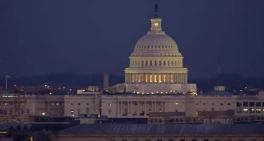Health care law on line at court, but is it likely to fall?
National Legal News
To hear Democrats tell it, a Supreme Court with President Donald Trump’s nominee Amy Coney Barrett could quickly get rid of the law that gives more than 20 million Americans health insurance coverage. But that’s not the inevitable outcome of a challenge the court will hear Nov. 10, just one week after the election.
Yes, the Trump administration is asking the high court to throw out the Obama-era healthcare law, and if she is confirmed quickly Barrett could be on the Supreme Court when the court hears the case.
But even if the justices agree that the law’s mandate to buy health insurance is unconstitutional because Congress repealed the penalties for not complying, they could still leave the rest of the law alone. That would be consistent with other rulings in which the court excised a problematic provision from a law that was otherwise allowed to remain in force.
Democratic lawmakers, however, sounded alarm bells Monday, the start of four days of hearings before the Senate Judiciary Committee for Barrett.
The party’s vice presidential nominee, Sen. Kamala Harris, who sits on the committee, said Republicans are “trying to get a justice onto the Court in time to ensure they can strip away the protections of the Affordable Care Act.”
“If they succeed, it will result in millions of people losing access to health care at the worst possible time: in the middle of a pandemic,” the California senator said.
Sen. Dianne Feinstein, California’s other senator and the committee’s senior Democrat, said, “Health care coverage for millions of Americans is at stake with this nomination.” And Sen. Sheldon Whitehouse of Rhode Island called Barrett’s nomination a “judicial torpedo aimed” at Affordable Care Act protections, including for preexisting health conditions. Other Democrats on the panel made similar points.
Democrats also repeatedly brought up words Barrett wrote in 2017, when she was a law professor, criticizing Chief Justice John Roberts’ 2012 opinion saving the Affordable Care Act. Barrett wrote that Roberts had “pushed the Affordable Care Act beyond its plausible meaning to save the statute.”
After that 5-4 ruling, which split the court along ideological lines, the justices rejected a second major challenge to the healthcare law by a vote of 6-3 in 2015.
The case before the court this year stems from Congress’ decision in 2017 to eliminate the law’s unpopular fines for not having health insurance. Despite repealing the fines, lawmakers left in place the law’s requirement that virtually all Americans have coverage. Texas and other conservative-led states argue that the change makes the requirement unconstitutional and also dooms the rest of the law because the mandate was so central to it.
But the court could simply “sever” the mandate from the law and leave the rest of the law alone. Many observers see that as a likely outcome and note the upheaval that would result across the American healthcare system if the law were to be struck down in its entirety.
Before the Supreme Court’s term began in October, Paul Clement, who argued in the 2012 Affordable Care Act case, said he wasn’t sure that the addition of a new justice would change the outcome of the case. He suggested that it is unlikely that the whole statute will fall.
Related listings
-
Oklahoma high court: Governor overstepped with tribal deal
National Legal News 07/23/2020Oklahoma Gov. Kevin Stitt overstepped his authority when he reached a casino gambling agreement with two Native American tribes, the state Supreme Court ruled Tuesday.In a 7-1 decision, the high court determined the compacts Stitt signed with the Com...
-
Wolf asks Pennsylvania Supreme Court to uphold shutdown
National Legal News 06/13/2020Democratic Gov. Tom Wolf asked the Pennsylvania Supreme Court on Friday to intervene in his dispute with legislative Republicans who have voted to end pandemic restrictions he imposed in March to slow the spread of the new coronavirus.Republican majo...
-
Supreme Court rejects challenge to limits on church services
National Legal News 05/31/2020A divided Supreme Court on Friday rejected an emergency appeal by a California church that challenged state limits on attendance at worship services that have been imposed to contain the spread of the coronavirus. Over the dissent of the four mo...




